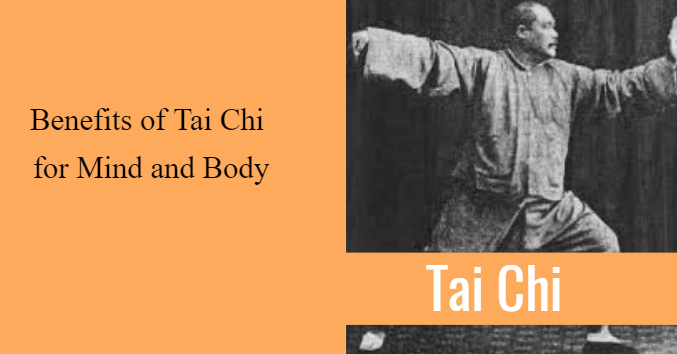Quick Overview
Tai chi (also called tai-chi chuan or tai ji quan) is a mind-body exercise that combines movements, meditation, and deep breathing. It is a low-impact exercise that is suitable for people of all ages and fitness levels.
Tai-chi is typically performed in a slow, flowing manner with a focus on deep breathing and relaxation. These movements are designed to improve balance, flexibility, strength, and coordination. Tai-chi is also thought to have a number of health benefits, including reducing stress, improving cardiovascular health, and reducing the risk of falls.

Table of Contents
The Essence of Tai Chi
Tai Chi, also known as Tai-Chi Chuan, is an art that originated in China. It combines slow, flowing movements with deep breathing and meditation. Often described as “moving meditation,” Tai Chi promotes a sense of tranquility and mindfulness.
Physical Benefits
- Improved Balance and Posture: Tai Chi’s slow and controlled movements enhance balance and posture, reducing the risk of falls and injuries, especially among seniors.
- Enhanced Strength: Despite its gentle appearance, Tai Chi’s slow movements engage various muscle groups, improving overall strength.
- Flexibility: Regular practice increases flexibility, reducing the risk of joint stiffness and enhancing range of motion.
- Pain Management: It has been found to be effective in reducing pain, particularly for individuals with chronic conditions like arthritis or lower back pain.
- Cardiovascular Health: The gentle aerobic nature of Tai-Chi can improve heart health, lower blood pressure, and promote overall cardiovascular fitness.
Read also: Healthy Aging: Fitness and Nutrition Tips for Seniors
Mental and Emotional Benefits
- Stress Reduction: The mindful and meditative aspect of Tai Chi helps reduce stress and anxiety, promoting emotional well-being.
- Mental Clarity: Tai Chi’s focus on concentration and breathing can enhance mental clarity and cognitive function.
- Emotional Balance: Practicing Tai Chi fosters emotional balance and resilience, helping individuals cope with daily challenges.
- Better Sleep: Regular Tai-Chi practice has been linked to improved sleep quality and can be a natural remedy for insomnia.
- Enhanced Self-Awareness: The meditative aspect of Tai-Chi encourages self-reflection and self-awareness, helping individuals connect with their inner selves.
Tai Chi for Everyone
One of the remarkable aspects of Tai-Chi is its accessibility to people of all ages and fitness levels. Whether you’re a young adult looking to improve mental clarity and reduce stress or a senior striving to enhance balance and flexibility, Tai Chi offers an adaptable practice that can be tailored to individual needs.
Getting Started with Tai Chi
To embark on your journey, consider the following steps;
- Find a Qualified Instructor: Look for a local class or instructor who can guide you through the practice.
- Choose Appropriate Attire: Wear comfortable, loose-fitting clothing and flat-soled shoes to ensure ease of movement.
- Set Realistic Goals: Establish achievable goals and be patient with your progress.
- Practice Regularly: Consistency is key. Aim for regular practice to experience the full range of benefits.
- Mindful Practice: Focus on the present moment during your sessions. Allow your mind to let go of distractions and simply be in the flow.
Questions
1. FAQ: Is Tai Chi suitable for all age groups?
Yes, it is suitable for people of all ages, from children to seniors. Its gentle, low-impact nature makes it accessible to individuals with varying fitness levels.
2. FAQ: How long does it take to see the benefits of practicing Tai Chi?
The time frame varies from person to person, but many individuals report experiencing benefits like improved balance and reduced stress within a few weeks of regular practice. Long-term practice yields even greater advantages.
3. FAQ: Can Tai Chi be practiced by individuals with physical limitations or disabilities?
Yes, it can be adapted for individuals with physical limitations or disabilities. In fact, it is often recommended as a form of rehabilitation and can help improve mobility and reduce pain.
4. FAQ: Do I need any special equipment or attire to practice Tai Chi?
No, it requires no special equipment. Wear comfortable, loose-fitting clothing and flat-soled shoes to ensure ease of movement. You may also want to have a quiet, open space for practice.
5. FAQ: Can Tai Chi be learned independently, or should I join a class?
While you can learn some moves independently through books or online resources, it is highly recommended to join a class with a qualified instructor. They can provide guidance, correct your form, and create a supportive learning environment.
